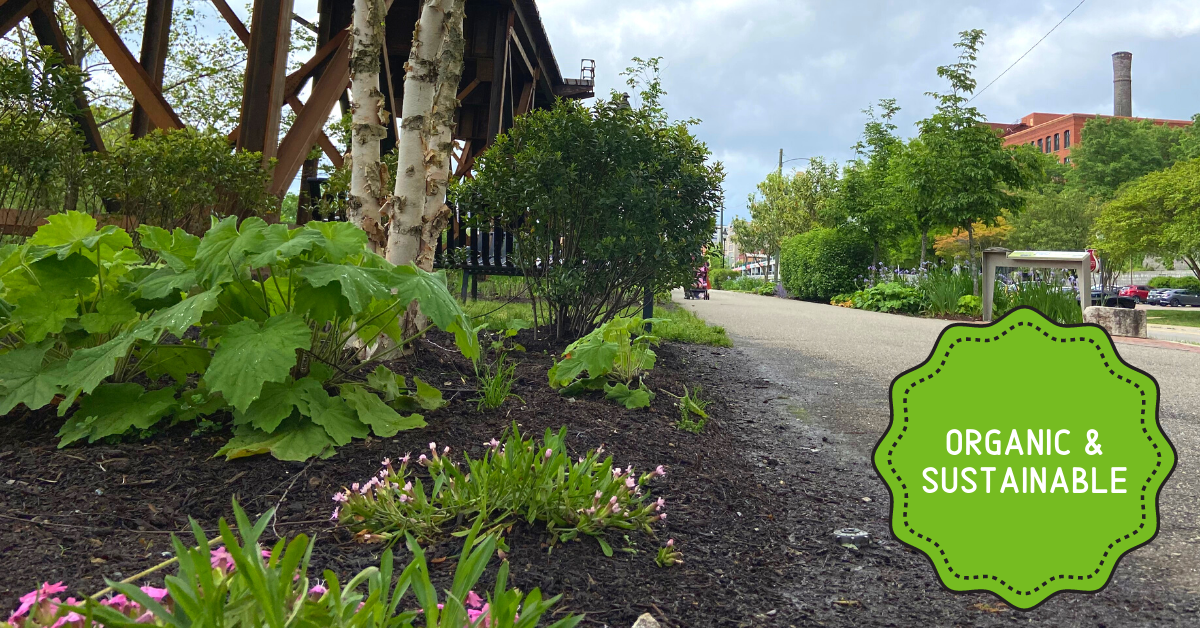
Our mission is to create a greener, more liveable Richmond through the thoughtful planning, planting, and maintenance of public greenspace.
This year, we’re integrating more sustainable management practices into our maintenance protocols for the Low Line and the Low Line Green.
If you’ve ever tried your hand at gardening, you know there is more to it than putting a couple of plants in the ground. The same goes for public landscapes and gardens – they don’t just magically flourish! They require an ongoing commitment to maintaining them.
By and large, the easiest way to maintain public gardens is through the use of synthetic fertilizers, herbicides, and pesticides. Most public landscapes look nice season after season because synthetic chemicals are pretty good at creating an appealing aesthetic. But, synthetics actually weaken plants over time which creates more problems in the long run. Plus, loading up gardens with harsh chemicals can be harmful to beneficial insects and can runoff into nearby waterways where they wreak havoc on the ecosystem.
This year, under the leadership of CT Board Member and Projects Committee Chair Anna Aquino, Capital Trees has made a giant leap away from the “traditional” way of doing things towards implementing organic and sustainable maintenance at the Low Line Gardens and the Low Line Green.
So, what does that mean?
Here are a few of the changes that are already underway at our projects:
-
Less machinery.
Landscape management companies usually wield gas-powered leaf blowers, lawn mowers and weed whackers for maintenance. But, these tools not only add to noise pollution, but actual air pollution as well. We’ve asked our landscape management company BWS Landscaping, to make a switch to electric tools and doing things by hand when possible to reduce our emissions.
-
A different mulching approach.
Bark mulch is commonly applied every year by many landscape management companies. While it looks neat and tidy, it doesn’t break down as quickly as it is applied. That means that it piles up over time, burying and suffocating the plants. This year, we removed years of bark mulch and replaced most of it with leaf compost. The shredded leaves more readily break down and add nutrients back into the soil and plants.
-
Organic products.
We are leaning away from synthetic chemicals and fertilizers. Instead, we’re leveraging more natural solutions to feed the soil and combat weeds. Organic and manual weed control takes a bit more patience and hands-on work – but we’d rather work a little harder than use harmful chemicals at our project sites.
We hope that this work will help to promote a different sort of garden. We, of course, want our gardens to help people connect with nature. But we also want them to be productive, helpful for wildlife, and just as importantly, sustainable.
We’re just beginning this new way of doing things and have some additional plans in the works including adding compost bins to our project sites, building “bee-houses” for pollinators, and implementing vermiculture (lots of worms) to improve the soil. We’ll be sharing details as these additions come to fruition, so stay tuned!

